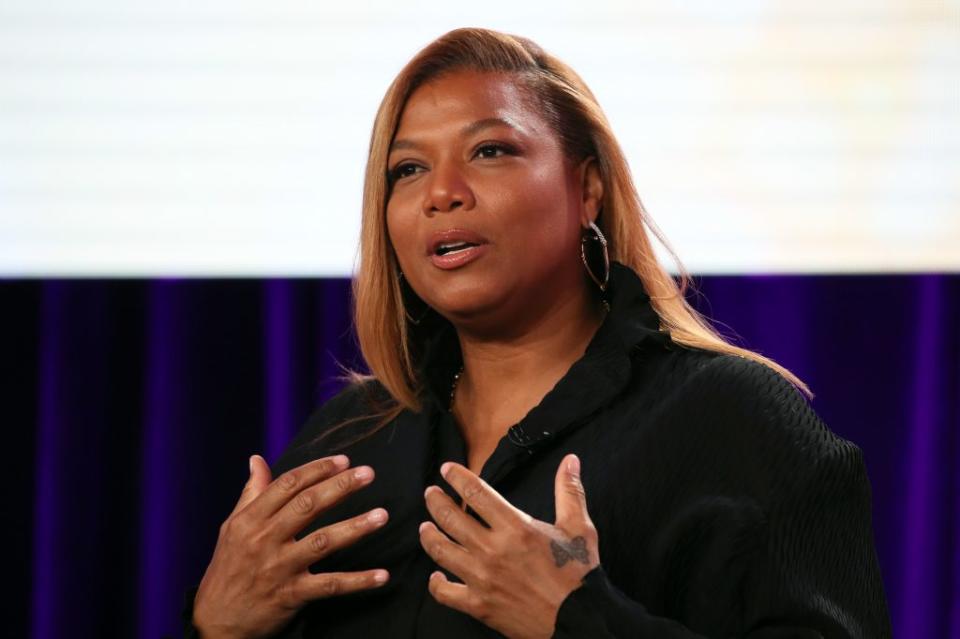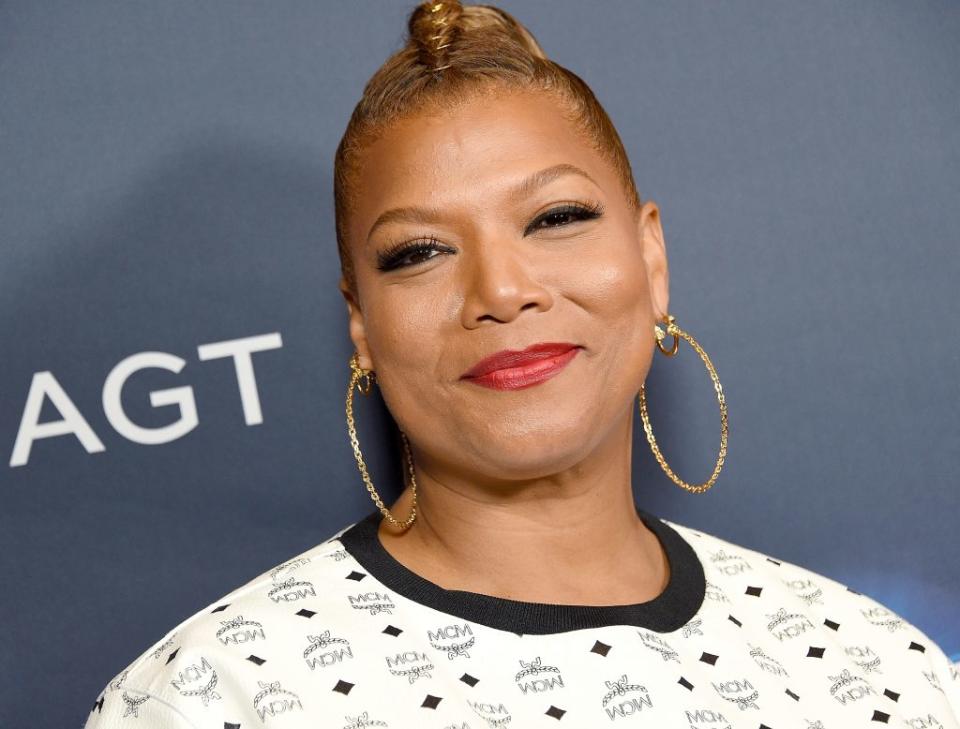Queen Latifah is demanding more Black representation in Hollywood

It’s no secret that Hollywood (well, every industry) has a Black problem.
In an open letter titled “Hollywood 4 Black Lives,” over 300 Black creatives wrote to “allies in Hollywood” urging them to “prove that Black Lives Matter to Hollywood by taking bold moves to affirm, defend and invest in Black lives.”
Hollywood, a place emblematic of a land of opportunity for creatives, entrepreneurs and entertainers, has not been such for Black and brown voices. “[Hollywood has] significant influence over culture and politics,” the letter reads. “Yet, historically and currently, Hollywood encourages the epidemic of police violence and culture of anti-Blackness.”
Among the signatures were names like Yara Shahidi, Janelle Monae, Melina Matsoukas, Taraji P. Henson, Rosario Dawson, Chadwick Boseman, Idris Elba, Edward Enninful and countless others.
Hollywood4BlackLives is a part of the BLD PWR organization founded by actor/activist Kendrick Sampson who currently stars as Nathan on the HBO series, “Insecure.”
A post shared by Kendrick Sampson (@kendrick38) on Jun 23, 2020 at 11:13am PDT
However, the discussion around Hollywood and the need for more Black creatives, both in front of and behind the screen, is one that’s not new.
“I’ve had helpful people throughout my career. There are many people who were not in a position of power early in my career who, when they got to that point, sought me out,” Dana Owens — also known as Queen Latifah — told In The Know while discussing The Queen Collective, a program that aims to accelerate gender and racial equality behind the camera by opening doors to the next generation of multicultural women directors.
She continued, “I know that their bosses probably wouldn’t have done that because they had a whole different mindset of what an A-list actress should look like. So, I was fortunate to run into some people, some pinpoints throughout my career, of people who were ready to move forward and who had endured things of their own.”

Latifah told In The Know that the power of allyship helped her career blossom in many ways. “They weren’t necessarily black. Many of them were women, but not all. And they were pivotal in terms of making sure that I was able to do what I needed to do once I got where I needed to get.“
However, Queen notes that even with support, the road was still not easy. “There were so many other people who weren’t in a position of power, and still are, that have such antiquated backward ways of thinking. It just makes it very difficult to move forward when you have to deal with people who really judge us on whichever Black person they meet who now is the representative for all Black people.”
When we ask about advancements in Hollywood, Queen notes that there have been improvements, but there have also been many setbacks. “We’ve been used throughout the years to build other people’s brands. The Black community? We come out, we show up for things because it’s simple supply and demand. You have not provided enough supply for the demand that is there. So when there’s a Black film that comes out, when there’s a film star, you know a lot. When there’s a LatinX film that comes out, if there’s an Asian film that comes out, you will see people show up because there is a demand for that. There’s just not enough supply. We have supplied television programming and films throughout the years. And you’ve seen these films do surprisingly well.”
“It’s not a surprise to us, it is a surprise to those of us who marginalize us.” — Queen Latifah

So, is it performative? “You’ll see one or two Black films do really well and that it’s lauded and then it looks at if it was a success, but then you don’t see the pipeline that stays open and keeps those films flowing through major studios,” Queen explained to In The Know.
“It was not like that, you know, it was not like that on television for a while either. You’d see like a group of shows with people of color, starring in them, even as lead actresses, and then it would disappear.”
In “Hollywood 4 Black Lives,” Black creatives are urging Hollywood to stop with the performative solidarity and really take a stand.
Companies in every industry have had to grapple with the fact that true systematic change has to happen internally as well from the top down. Case in point: It is not enough to just put more Black actors on a screen and call it a day.
“Every time a Black executive or assistant is passed over for a promotion, or the marketing or production budget for another Black-led film is limited, or when Black agents aren’t supported, Black writers are shut out, outnumbered or diminished, Black hair stylists are neglected, Black grips, gaffers, and camera assistants and operators are shut out of below the line unions – EVERY SINGLE TIME – this gives us less control over our narratives, continues the legacy of white supremacy’s influence over our stories and makes Black people in Hollywood and all over America less safe.”
“We’re not trying to move backwards, we’re trying to move forward,” said Queen Latifah. “In order to do that, you need to include new ideas, fresh ideas and you need to guide those new ideas with your elder in a positive way. Expertise, you know, to help shape and mold the future rather than trying to stop it from happening. Because it’s gonna happen.”
To learn more about The Queen Collective, you can read it here.
To read the entire “Hollywood 4 Black Lives,” check it out here.
Activism isn’t limited to standing on the frontlines. If you are interested in educating yourself, this bot will help you find a book written by a Black author.
More from In The Know:
Kim Petras pushes for more diversity in Pride: ‘It all started with a Black trans woman’
Shop our favorite beauty products from In The Know Beauty on TikTok
13 Black-owned beauty brands at Nordstrom, Sephora and Ulta right now
Amazon’s Big Style Sale: Snag the best accessories from Shopbop, Kate Spade and more
The post Queen Latifah is demanding more Black representation in Hollywood appeared first on In The Know.

 Yahoo Sports
Yahoo Sports 